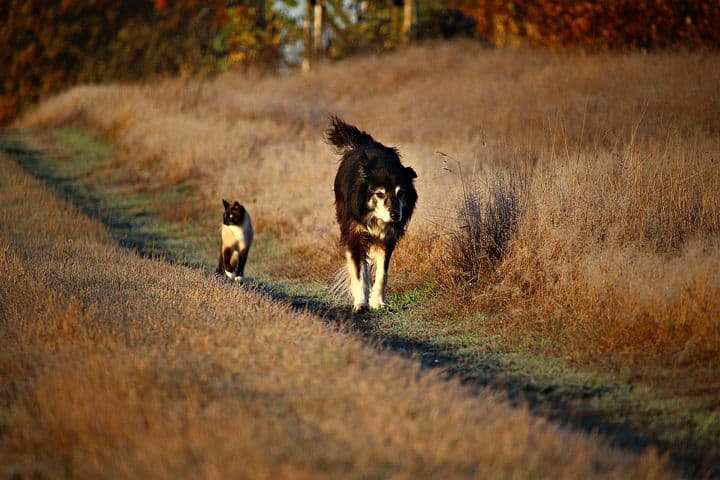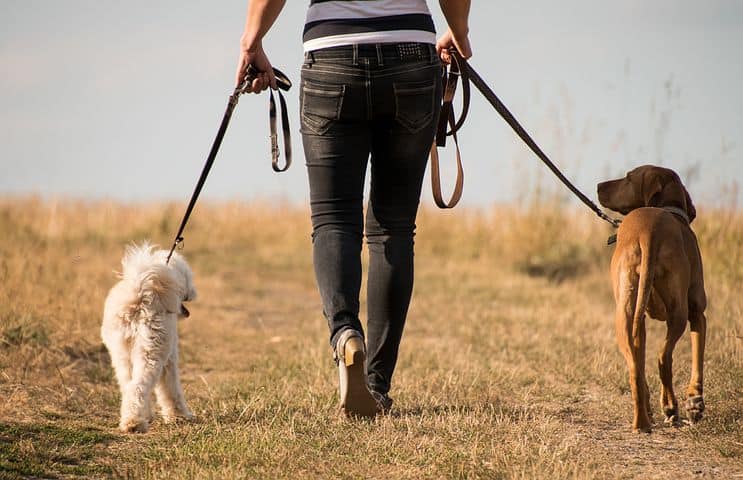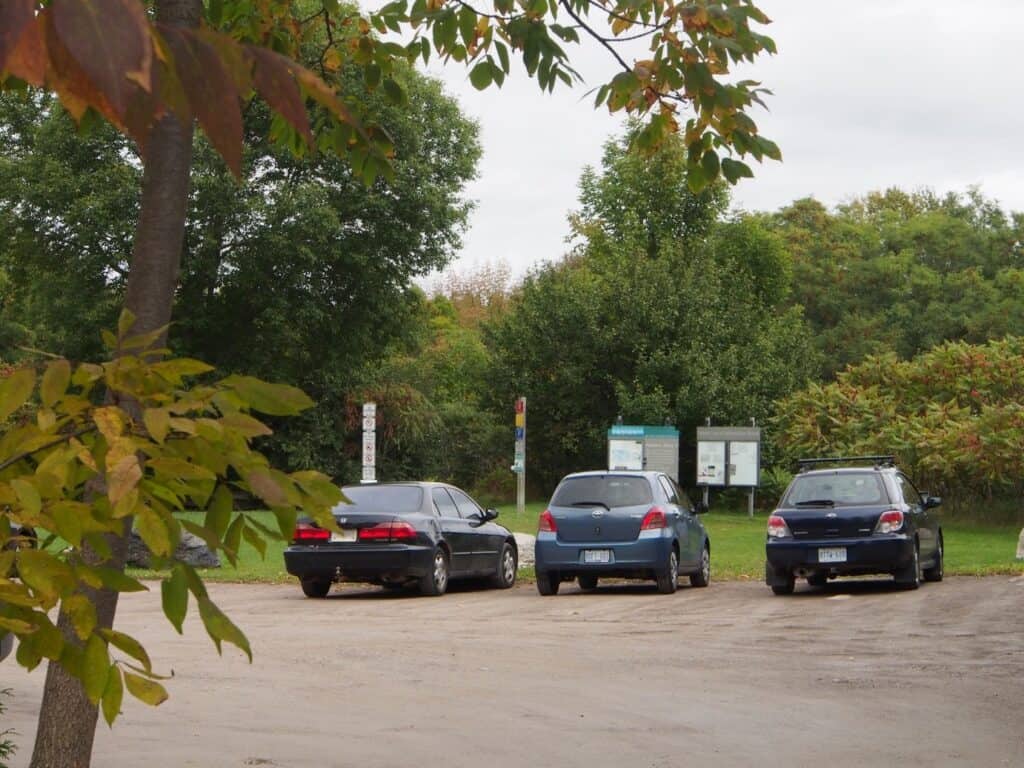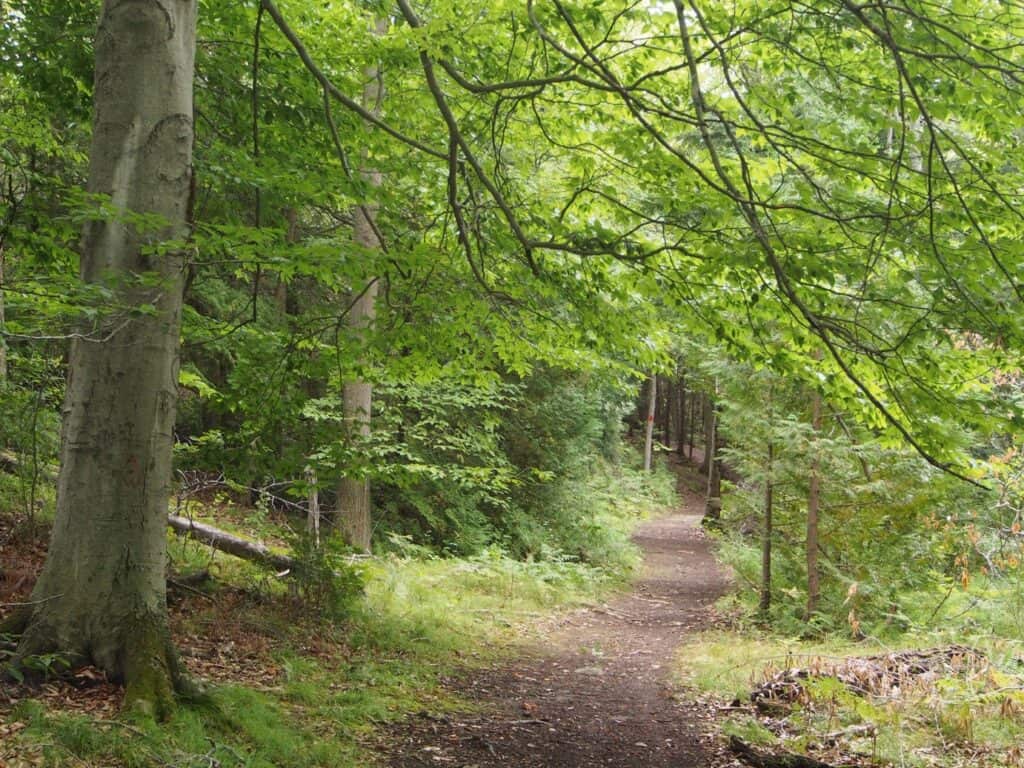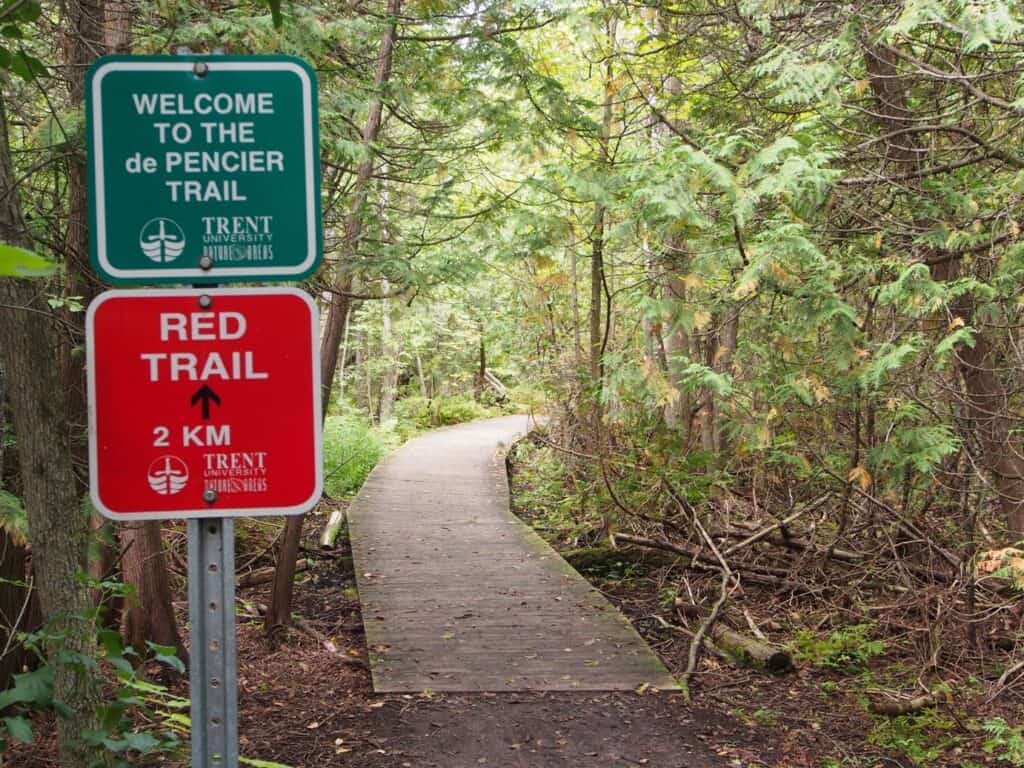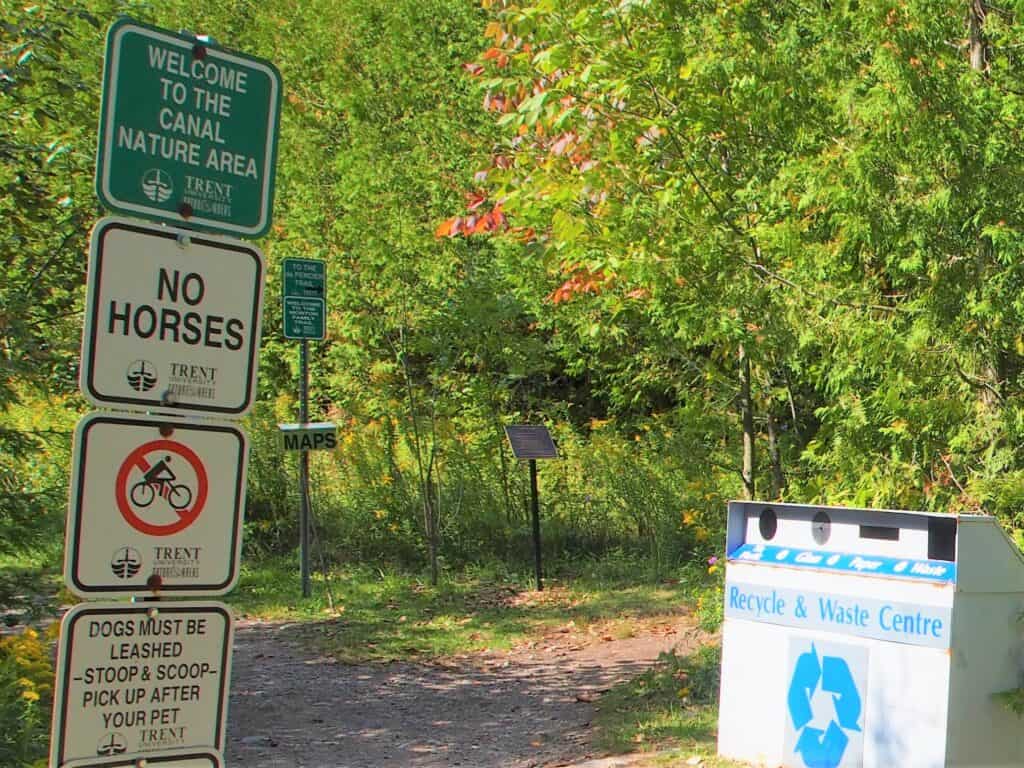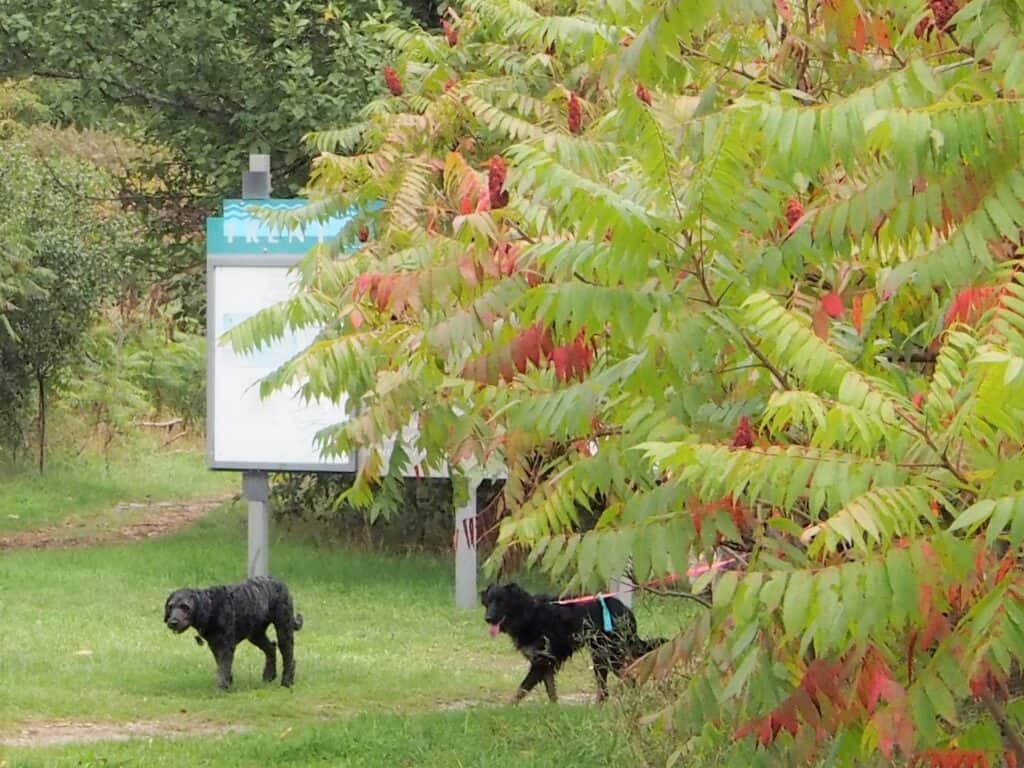Peterborough Examiner – May 21, 2021 – by Drew Monkman
“These woods were meant for nature walks/ Cross-country skis, and quiet talks./ Instead, we find ourselves among/ An endless trail of steaming dung.” Anonymous, March 2021
I am a dog lover. I still remember the Christmas morning when my parents surprised me and my brother with a little black mongrel. Squib was a huge part of my life as was Sam, the wonderful golden retriever that my own kids grew up with.
However, I also love nature. I enjoy nothing more than spending time in local green spaces, especially during spring and fall bird migration. The impact that off-leash dogs are having on these precious areas and on the enjoyment of other users has become a huge problem. Far too many people simply ignore Peterborough’s Animal By-law 17-096 which clearly states you must pick up after your dog and that “Every owner of a dog shall ensure that the dog is kept on a leash and under the control of a person when the dog is on any land in the City.”
On May 3, I expressed my frustrations about irresponsible dog owners on Facebook. The post clearly hit a nerve. At last count, there were 146 comments, nearly all in agreement with how big a problem this has become. The post has also been shared a remarkable 331 times. People shared anecdotes of how often they encounter off-leash dogs – and discourteous owners – almost every day on local trails and in parks and Conservation Areas. Many mentioned unwanted interactions caused by an off-leash dog running up to their own dog.
Many people honestly don’t know how letting their dog run freely could be harmful. I came late to this understanding myself. My biggest concern had always been free-roaming cats, which kill more than 100 million native birds in Canada every year and still roam loose in Peterborough despite the by-law. Learning about the impacts of dogs has been quite an eye-opener.
To be fair, most dog owners are courteous, responsible, and their dogs are always leashed. However, there is a significant sub-set who think by-laws don’t apply to them. They are either uncaring or simply oblivious to the negative impacts their off-leash canine is causing. Many are rude or even aggressive when reminded their dog should not be running free. This problem has only gotten worse since the pandemic began as more and more people have (understandably) become dog owners.
A case in point is a recent incident at the Harold Town Conservation Area. A friend told me that a large dog had run up to her leashed dog with a limp woodcock in its mouth. It had probably grabbed this declining bird species off its ground nest before killing it. When she confronted the owner about letting the dog roam free, he yelled “F*ck off! This is a public space.”
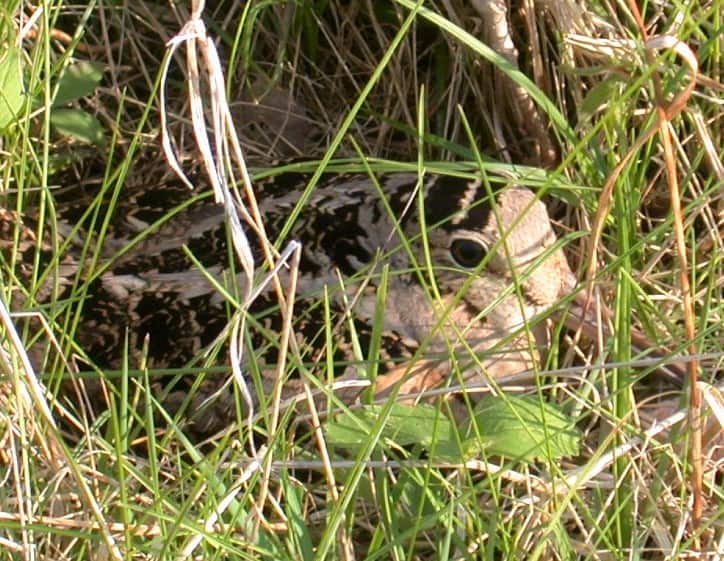
Last Saturday I was birding at Meadowvale Park off of Armour Road when I saw two off-leash dogs, one of which was running full-speed through the understory in an area full of migrating birds. When one of the dogs ran up to me, I politely reminded the owner of the bylaw and explained that off-leash dogs are a threat to wildlife – especially in spring – and can ruin the enjoyment of green spaces for others. His answer floored me. “Maybe you shouldn’t walk in areas where dogs are off-leash.”
Dogs and wildlife
Dogs have a host of impacts on wild animals, plants, and ecosystems. According to the Globe and Mail of April 17, off-leash dogs are now the number one threat to natural habitat and species protection in Toronto’s famous ravines. Many of the impacts are cumulative and quickly getting worse, given the sheer number of people who now own dogs. Unleashed dogs will often chase and sometimes kill all manner of wildlife, including recently fledged birds. Because dogs are a sub-species of wolves, wild birds and mammals perceive them as predators. Disturbance by dogs therefore causes them stress and interferes with feeding and breeding activities. Ground-nesting birds like bobolinks, woodcock, killdeer, and meadowlarks are especially vulnerable. Letting a dog run free in the early morning or evening is especially harmful, since wildlife is most active at these times of day.
Numerous studies have even shown that just the smell and sound of dogs greatly reduces the amount of wildlife to be found within 10 metres of a given trail. Dogs also trample plants. Shorelines and wetlands are particularly sensitive to degradation of this kind, even when the dog is leashed.
Impacts on people
Since the start of the pandemic, there has been a massive increase in foot traffic in natural spaces and trails throughout Peterborough County. This is wonderful. Engagement with nature is probably at an all-time high. However, I know many people who no longer go walking or bird-watching on many local trails, because of the number of off-leash dogs. One person commented on Facebook that “this is one reason we don’t walk or ski on trails at Trent University anymore – in the so-called ‘nature areas’.” Things have gotten so bad that the Peterborough Field Naturalists no longer holds field trips to the Trent Wildlife Sanctuary because of incidents with off-leash dogs and some aggressive dog owners.
There is also the problem of off-leash dogs invading the space of other people and their pets, even if the offending canine is friendly. Being startled or even frightened is not the only issue; loose dogs disrupt other users’ enjoyment of trails and green space. This is also a concern for people walking their leashed dogs. One woman wrote on Facebook, “I’ve stopped taking my old blind dog out, because loose dogs were always running up to her and frightening her.”
Finally, there’s the matter of fouling dog excrement everywhere, including on the bottom of your shoes. What’s equally galling is how some people simply throw their bag of dog poop into the woods where it often hangs hideously from branches.
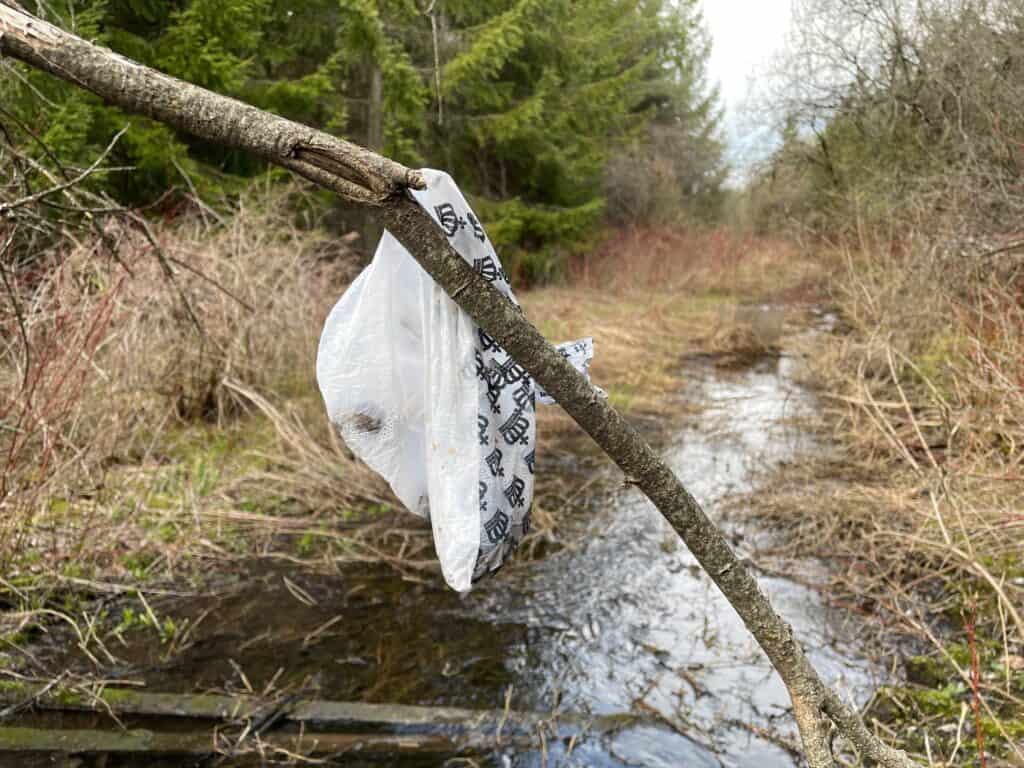
Dr. Roger Jones, a retired Trent University botanist, is quantifying the amount of dog excrement in the Wildlife Sanctuary and Canal Nature Areas on University Road. His data indicate that well over 100 kg of dog feces are being deposited annually along and close to the first 150 m of trails that begin at the parking lot. “The beginnings of the trails are being treated by some dog owners as dog fecal latrines despite the several by-law signs stating that feces should be picked up,” says Jones. Roger was instrumental in the development of Trent’s interpretive trail system for which he received an “Outstanding Achievement Trail Builder Award” from the Ontario Trails Council.
What to do?
This is clearly a complicated problem. Still, the bottom line is that people need to respect the by-law. It’s also imperative that the by-law be enforced – both for off-leash dogs and for free-roaming cats. Councillor Henry Clarke recommends that if you see people ignoring the law, you should phone the Peterborough Humane Society at 705-745-4722 and provide the time and location. An officer will come out. Repeatedly disregarding the rules will bring fines.
Cleary, having more year-round garbage bins for dog poop is part of the answer, as is For an excellent resource on the impacts of dogs in green spaces, visit www.protectnatureto.or more leash-free dog parks. It’s also important that Trent University, Otonabee Conservation, and other managers of green space take this problem much more seriously. I believe that some areas should simply be off-limit to dogs. I would put the Trent Wildlife Sanctuary and adjacent Canal Nature Area at the top of the list.
CLIMATE CRISIS NEWS
HOPE: City staff has delivered a comprehensive and progressive new tree by-law, and Council has responded positively. This is excellent news, and Council and staff should be congratulated. The by-law passed general committee first vote on May 10. It is shaped with climate change front of mind, thanks in no small part to the city’s declaration of a climate emergency in 2019. The by-law will be presented again on May 25 for public input and final vote.
